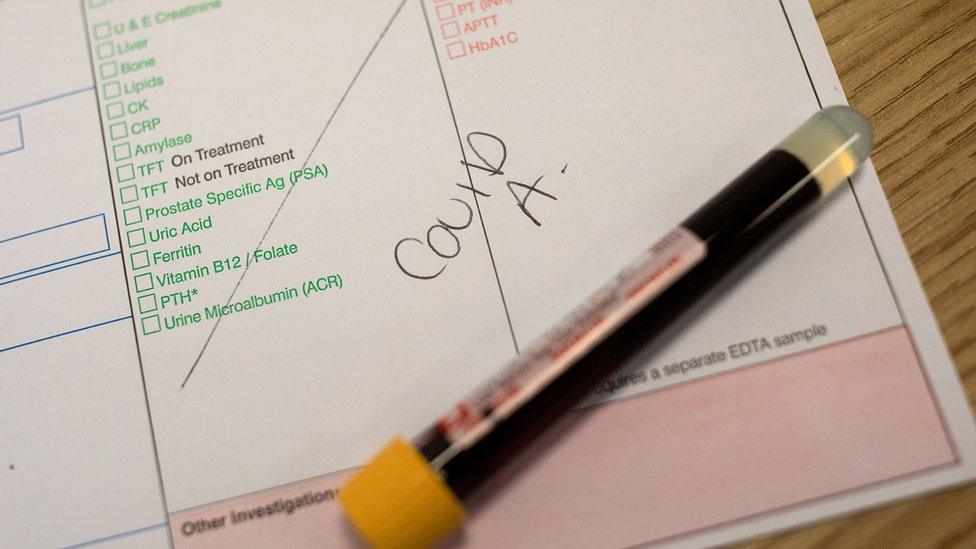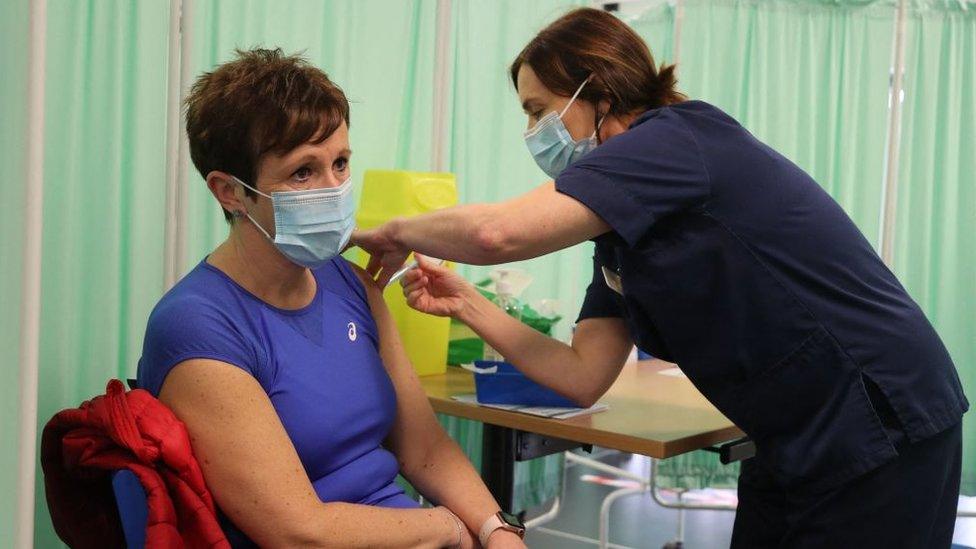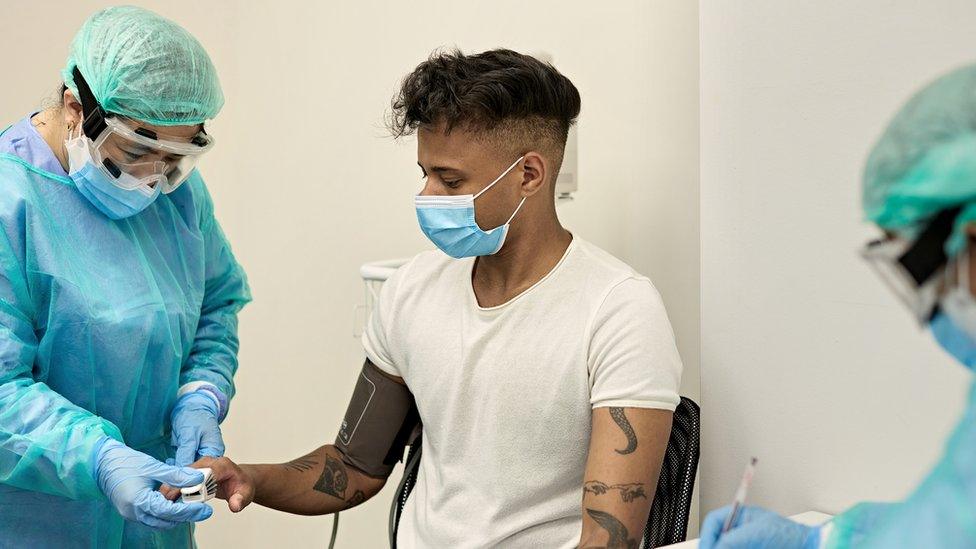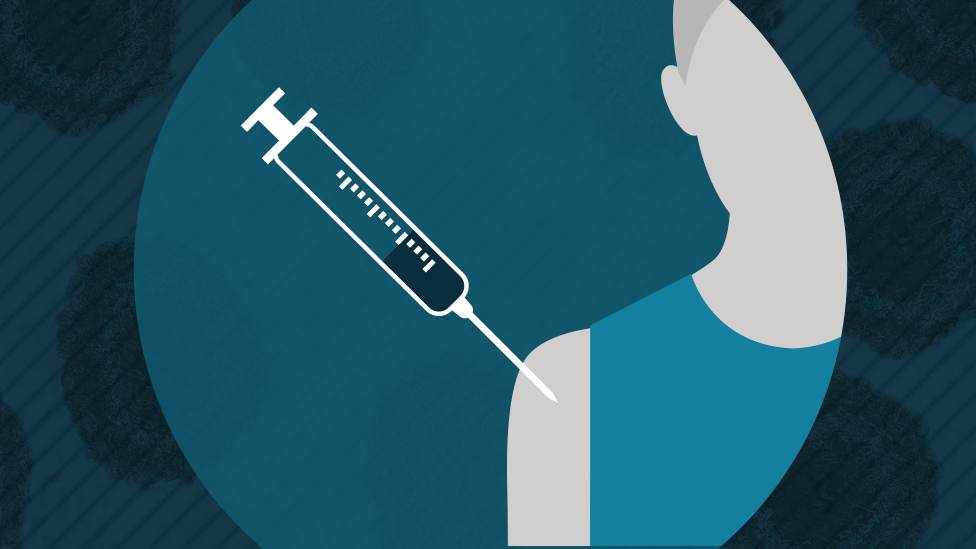Covid-19: 'He's obviously the antibody winner'
- Published

Sarah Julian and husband Dan Sinclair had the Oxford-AstraZeneca jab at the same time
"He's like Superman, isn't he?"
For BBC presenter Sarah Julian, her husband's wildly different reaction to a blood test they both had following their coronavirus vaccinations two weeks ago left her "a bit shocked".
Laboratory analysis showed Ms Julian so far only had a minor increase in antibodies - proteins produced by the body which help fight the virus - while Mr Sinclair, who caught Covid in March 2020, almost maxed out the scale.
'Miserably unwell'
"He's obviously the antibody winner," said Ms Julian, who hosts the BBC Radio Nottingham breakfast show.
"[I'm] really relieved to hear the first jab has given me some protection from the virus but it's made me really keen to get the second jab as I was a bit shocked my antibody levels were nothing like as high as Dan's.
"Dan had Covid back at the beginning of the pandemic and I now understand why he was so miserably unwell with it - at the time I thought it was mainly whinging!"

A university expert says Ms Julian's first vaccination "still gives a good level of protection"
The thumb-prick test was carried out by the University of Nottingham, which is investigating whether past exposure to the virus can increase the ability of antibodies to kill emerging variants.
After taking a small sample of blood from both Ms Julian and Mr Sinclair, Professor Paddy Tighe, an immunologist from the university, exposed the specimens to three variants of coronavirus.
The response of certain types of antibodies in the blood was then measured on a scale of zero up to three.
Against the Wuhan strain - which the vaccines were developed to combat - Sarah scored 0.315, while Dan rated 1.95.
When tested with the most common strain in the UK, known as D614G, and the South African variant, Sarah scored roughly the same, while Dan measured 2.8 and 2.71.
Prof Tighe said the test results were exactly what he would have expected to see and a first dose of the jab still offered "good protection".

The thumb-prick blood samples were exposed to three types of coronavirus
He added it was vital to understand what the figures really meant.
"Dan had coronavirus earlier in the pandemic so his body remembered it and his vaccination acted as a booster to create more antibodies," he said.
"The evidence is that having a strong immune response really reduces your risk of getting severe Covid symptoms. It doesn't rule out the fact you might get a mild Covid infection. This is why we are trying to make sure everyone... does social distancing.
"For Sarah it was a first dose, which is deliberately low, and a full antibody response will not be seen until week three or four.
"Even so, it gives a good level of protection, preventing serious symptoms in 60-70% of cases and the second dose will see a big surge in antibodies."

Follow BBC East Midlands on Facebook, external, on Twitter, external, or on Instagram, external. Send your story ideas to eastmidsnews@bbc.co.uk, external.
- Published19 April 2021

- Published19 April 2021

- Published15 February 2022
